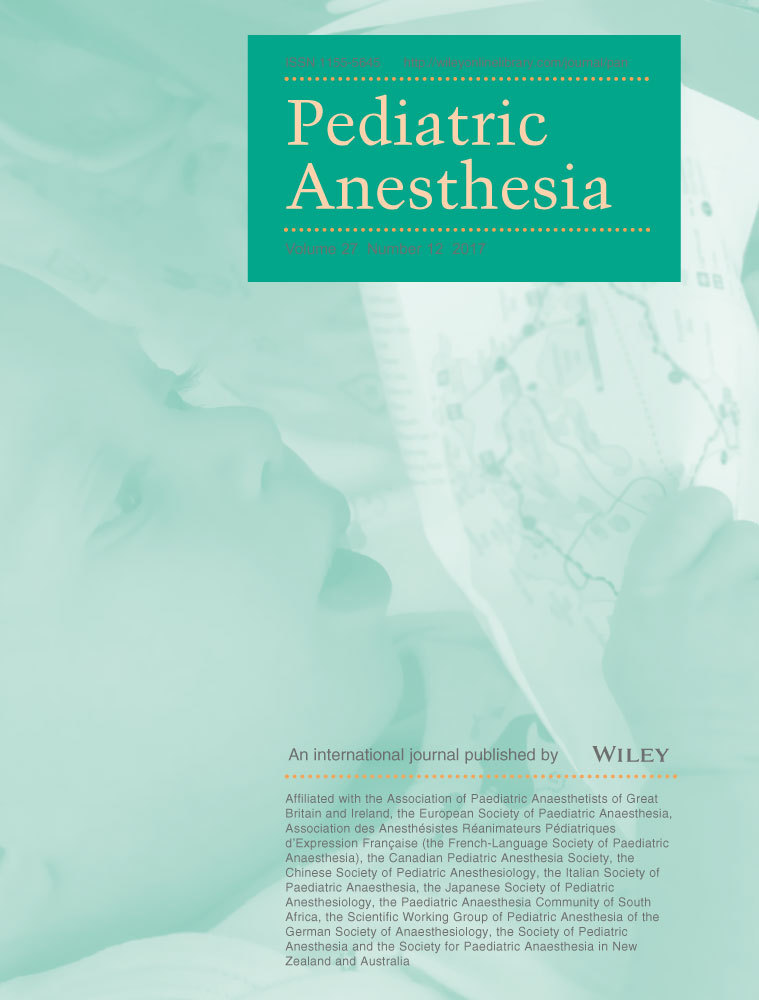Nurse-driven analgesia and sedation in pediatric patients with univentricular hearts requiring extracorporeal life support after first-stage palliation surgery: A pilot study
Summary
Background
Few data are available regarding requirements of sedation and analgesia in children during extracorporeal life support.
Aims
The aim of this study was to evaluate if children with functionally univentricular hearts on extracorporeal life support after first-stage palliation surgery have higher requirement of analgesics and sedatives compared with children without extracorporeal life support using a goal-directed nurse-driven analgesia and sedation protocol.
Methods
This prospective observational matched case-control pilot study was conducted at a cardiac pediatric intensive care unit of a tertiary referral center. Seventeen patients with functionally univentricular hearts including hypoplastic left heart syndrome who were on extracorporeal life support after first-stage palliation surgery were enrolled from July 2012 to January 2017. Seventeen matched patients served as controls. Doses of morphine, midazolam, clonidine, and muscle relaxants as well as sedation scores (COMFORT behavior scale and the nurse interpretation of sedation scale) were assessed according to a nurse-driven protocol every 8 hours up to 120 hours after first-stage palliation surgery.
Results
Sedation scores were equal in the extracorporeal life support group and in the control group at most points in time. There was no significant difference in cumulative doses of morphine and midazolam. However, children of the extracorporeal life support group received higher doses of midazolam and morphine at some points in time.
Conclusion
A nurse-driven protocol for analgesia and sedation of children with extracorporeal life support is feasible. Patients with extracorporeal life support do not need deeper sedation levels and have not higher cumulative sedation requirements than children without extracorporeal life support.




